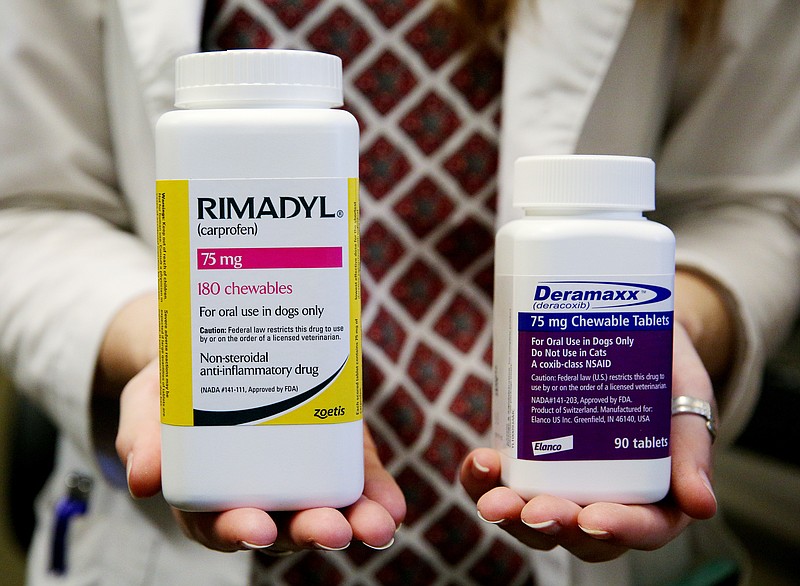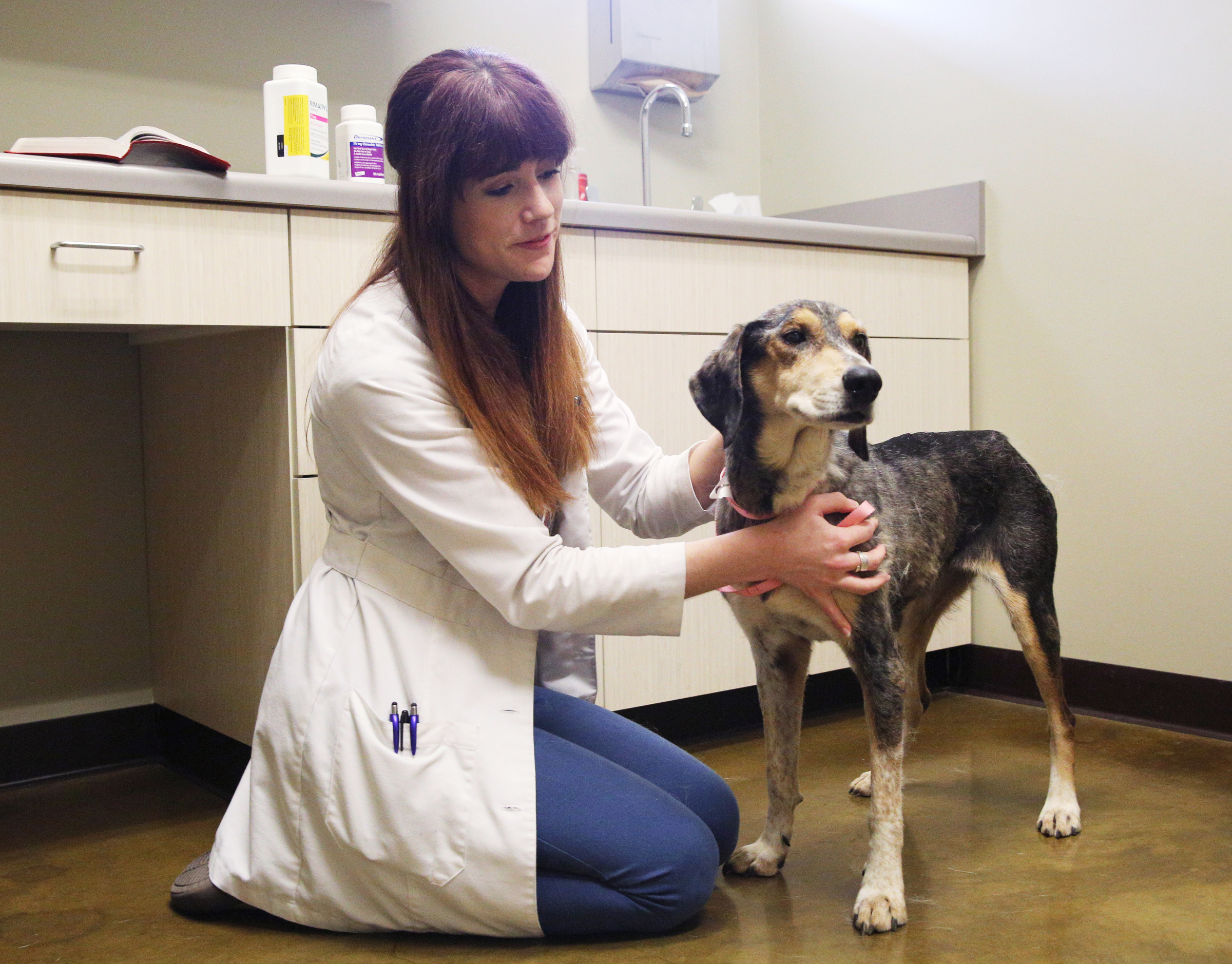Never give a dog ibuprofen before consulting a veterinarian.
When the choice is pain, pill or a vet, local veterinarian Dr. Erin Felty advises pet owners to choose the vet.
"A dog in pain is something we can fix, but administering Advil may be life-threatening," says Felty, who treats animals at Riverview Animal Hospital.
Felty's message echoes a report issued by the American Society for the Prevention of Cruelty to Animals that breaks down the most common pet toxins across the nation. Ibuprofen is the most common cause of pet toxicity in several states, including Tennessee and Georgia. In Alabama, the most common toxin is oral flea medication.
The ASPCA compiles the yearly report based on calls to its Animal Poison Control Center.
"Year after year, we find that chocolate, ibuprofen and anticoagulant rat bait - a dangerous poison that can cause internal bleeding if pets eat it - top the list," according to the ASPCA news release.
"In 2016, we saw a significant increase in a different kind of rat poison, one that causes neurological symptoms, such as tremors and seizures, if pets eat enough of it."
Need help?
For expert animal toxicology advice, call the ASPCA’s Animal Poison Control Center at 1-888-426-4435.
Popular brands of ibuprofen include Advil, Motrin and Midol, according to petmd.com. Well-meaning owners give these over-the-counter medicines to animals to ease pain. Sometimes it may help, but owners could do more harm than good.
"It's very easy to overdose them," says Felty. "Ibuprofen is just a medication that we don't like to give to dogs at all, even at a normal dose."
Prescription medications such as Deramaxx and Carprofen are nonsteroidal anti-inflammatory drugs, like ibuprofen, that are formulated specifically for animals. Veterinarians use them like Advil to relieve pain and fever in pets.
Animals tolerate the prescription drugs better, and they are less likely to see side effects that may come with ibuprofen and aspirin.
Symptoms of ibuprofen poisoning in dogs include lack of appetite, bloody feces, diarrhea and weight loss.
Proper care for animals comes down to money for many owners, says Deborah Maddox, who owns a 9-month-old shepherd mix.
More affluent people go to the vet, she says. Those who don't have the money are more likely to treat animals at home.
Pet owners on average pay about $115 when visiting Riverview Animal Hospital. The flat examination rate is $46, though that decreases to about $31 if the dog also gets vaccinations. There's a separate charge for each vaccination.
But the trade-off for vet expenses could be a healthier dog.
Felty has never witnessed ibuprofen poisoning at her office, but she recalls a dog becoming fatally ill in Knoxville in 2015.
It happened during her senior year in vet school when a dog chewed on a medicine bottle and accidentally digested several ibuprofen pills. He developed severe bleeding and died of blood loss, she says.
Pets metabolize ibuprofen differently than humans, and even small amounts of ibuprofen can cause problems because of the difference in elimination.
Ibuprofen in dogs could cause vomiting and gastric distress, according to petmd.com. It could also lead to seizures, coma and death.
Contact Yolanda Putman at yputman@timesfreepress.com or 423-757-6431.

